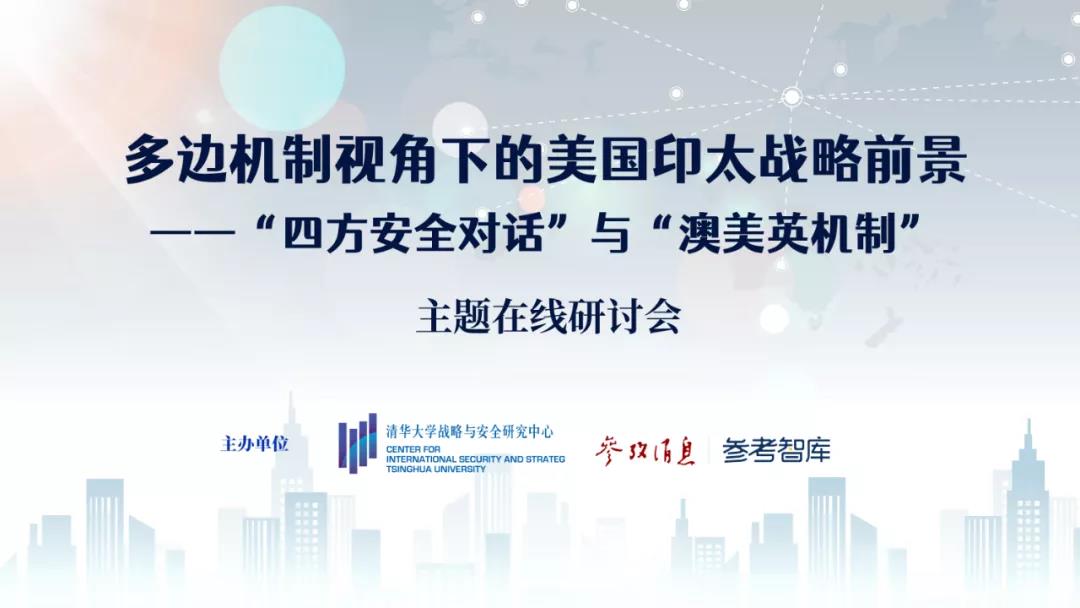
On September 28, 2021, the Center for International Security and Strategy (CISS) of Tsinghua University and the Institute of Reference News jointly held a virtual seminar on the theme of “Prospects for the US Indo-Pacific Strategy in the Context of Multilateral Mechanisms – the Quad and AUKUS.” Moderated by LIU Hua, Director of the Institute of Reference News, the session brought together DA Wei, Deputy Director of CISS and Professor of International Relations at Tsinghua University, ZHOU Bo, CISS Senior Fellow, ZHONG Feiteng, Fellow and Head of the Department of Great Power Relations Studies at the National Institute of International Strategy under the Chinese Academy of Social Sciences (CASS), and QIU Chaobing, Associate Fellow at the Institute of American Studies at CASS, for discussions on the developments of the Quad and AUKUS, the US Indo-Pacific Strategy and its impact on China.
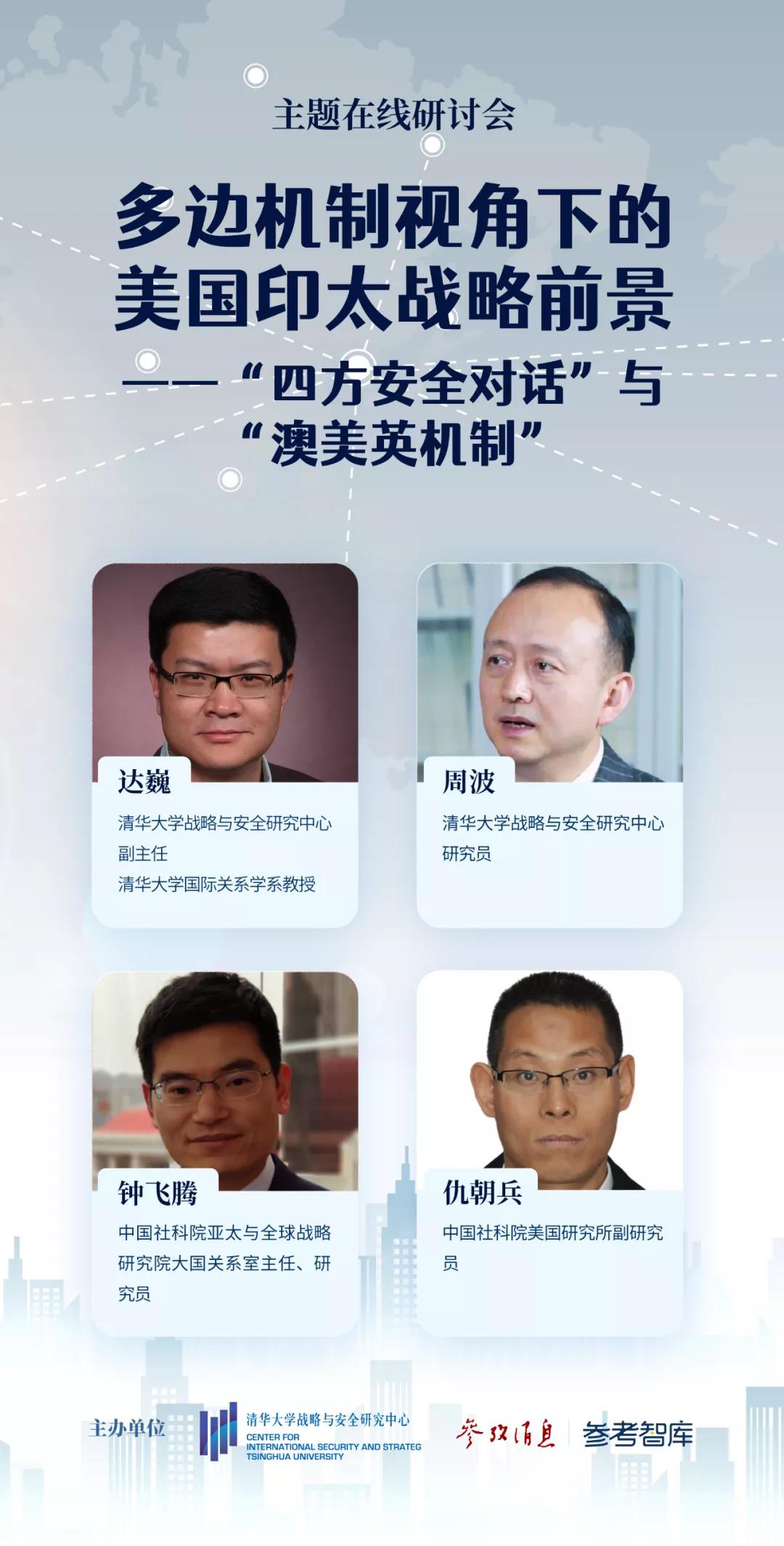
Taking stock of the roles of the Quad and AUKUS and the challenges they face in the current international landscape amid the adjustments of the US Indo-Pacific strategy and alliance system, the panelists believe that the Quad focuses more on wide-ranging non-security cooperation, while AUKUS reflects how US relations with its core allies are taken to a new level, which may well undermine the international nuclear non-proliferation efforts or set a destructive precedent. The goals of America’s Indo-Pacific strategy have been plain and clear, but its alliance system is experiencing significant adjustments—the Quad and AUKUS marked a shift from a close, Cold War-era alliance system centered on common defense to a more flexible and integrated one united through the cultural identity of the Anglo-Saxon world. Some scholars also suggested that it is important to look at these two new mechanisms from a historical perspective and that the long-term interaction between the countries involved is crucial for understanding the developments of the Quad and AUKUS.
Staff members with Reference News, CISS fellows and students from Tsinghua University were invited to observe the seminar. After the discussions, the panel took questions from the audience about possible short- and medium-term threats to China from AUKUS, the relationship between America’s synthetization of its Asia-Pacific multilateral mechanisms and its traditional alliance system, the likelihood of building a US-Southeast Asia alliance, whether Biden’s China policy will stabilize before the 2022 midterm elections, and the US attitude toward China joining the CPTPP.
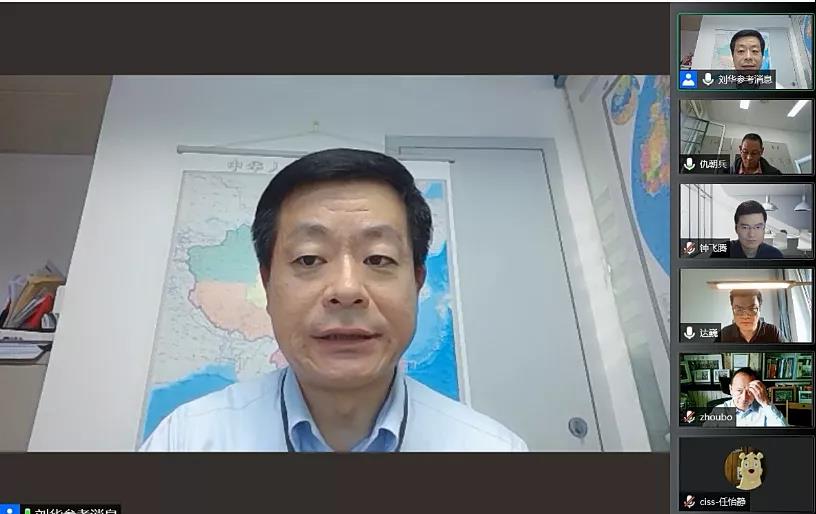
Moderated by Liu Hua
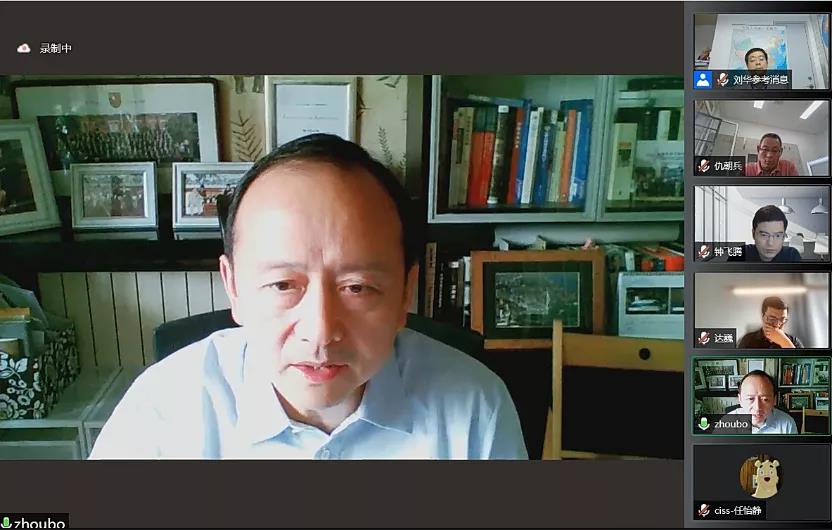
Remarks by Zhou Bo
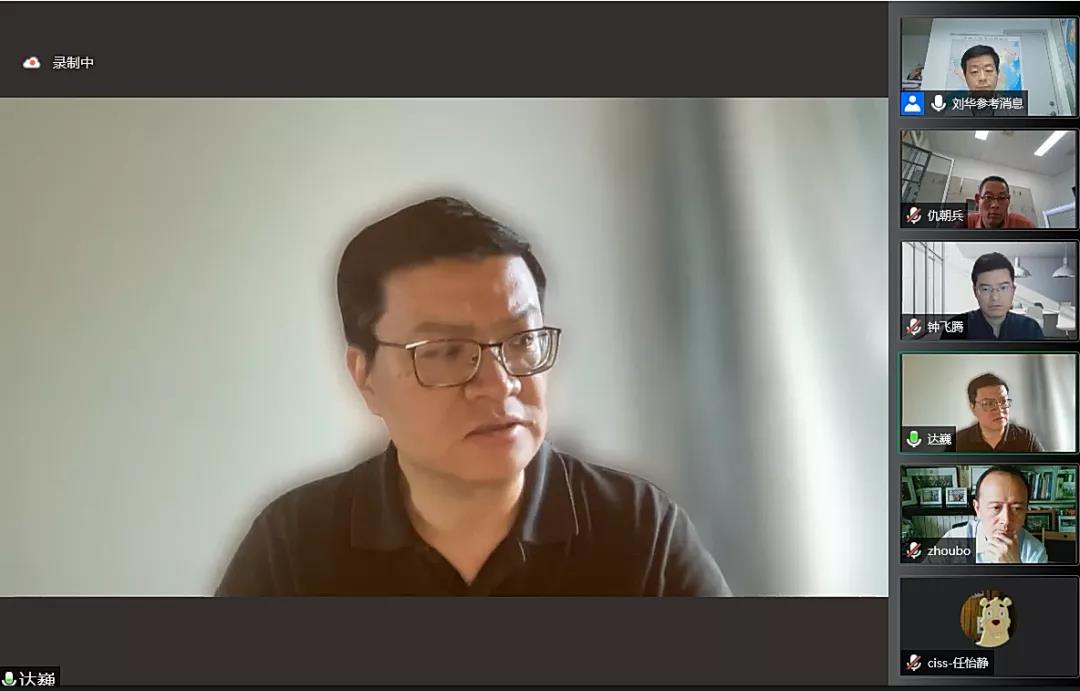
Remarks by Da Wei
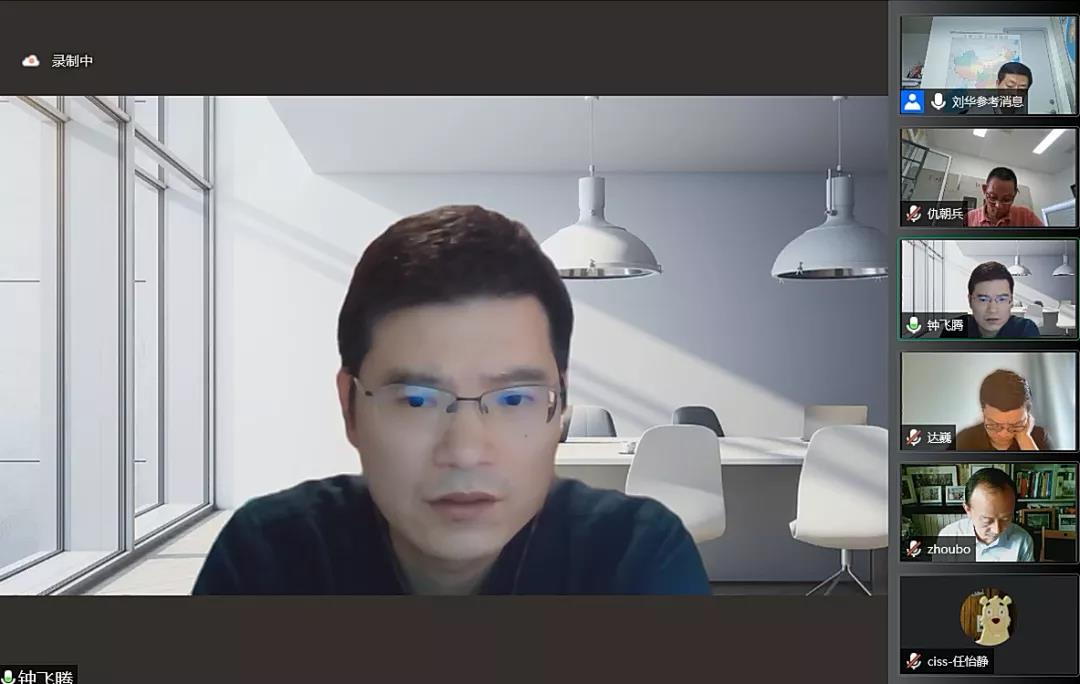
Remarks by Zhong Feiteng
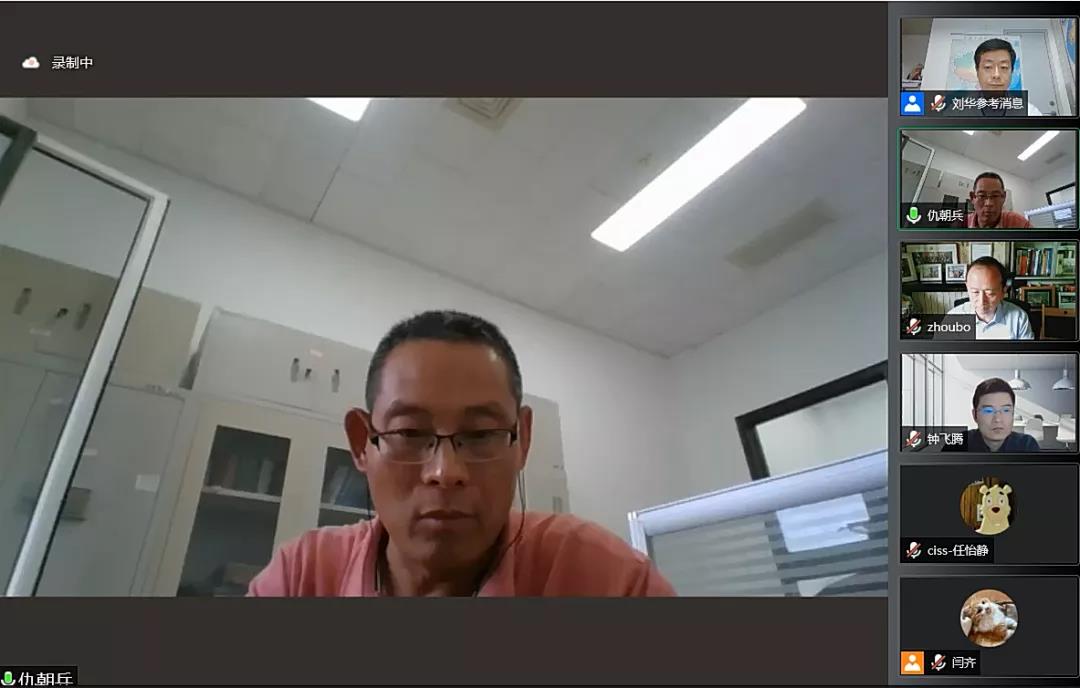
Remarks by Qiu Chaobing
